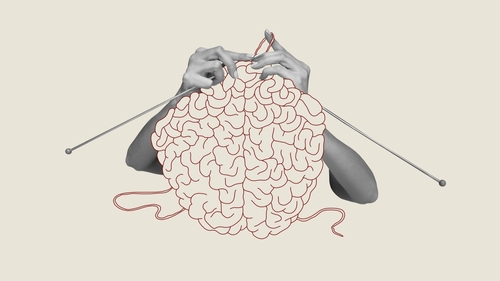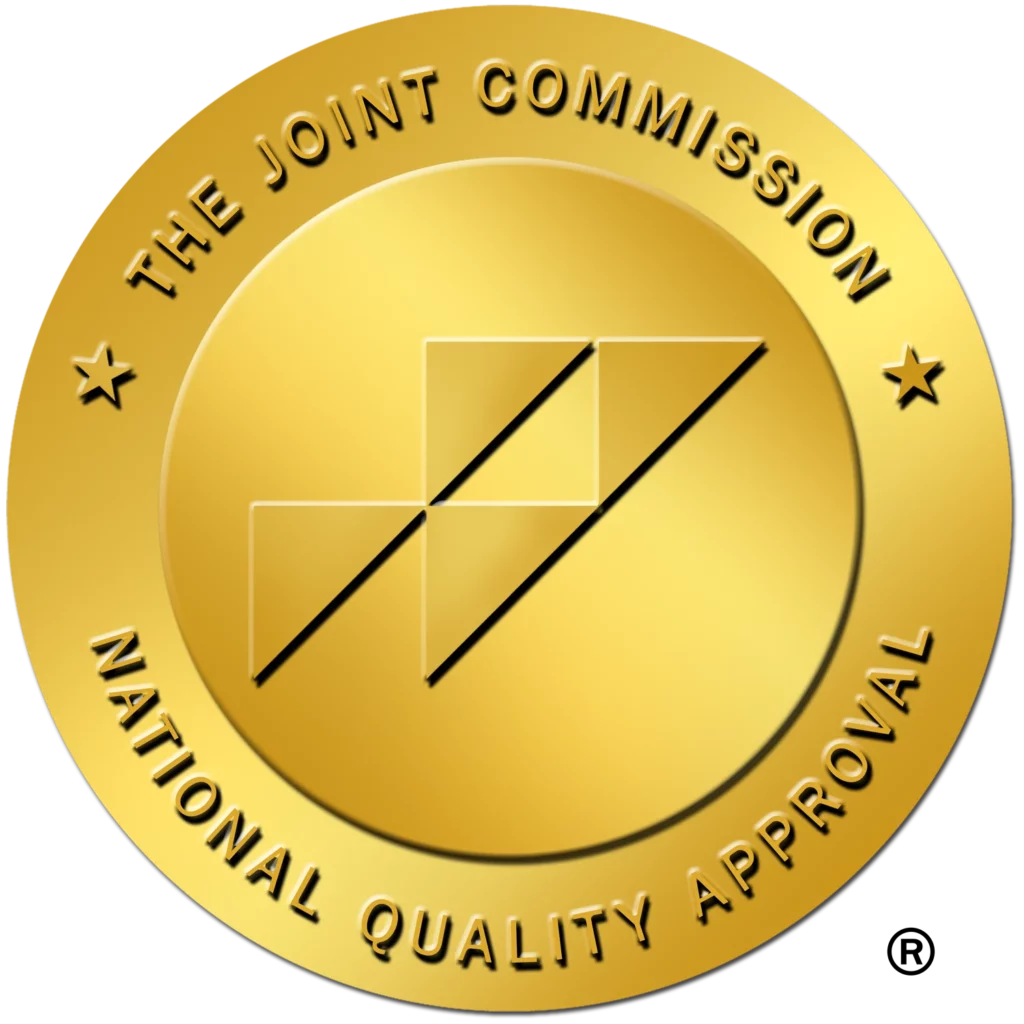What Demi Lovato Teaches Us About Addiction and Recovery
This entry was posted in Addiction Recovery and tagged addiction and recovery, addiction recovery, Demi Lovato addiction, Demi Lovato recovery on October 20, 2019 by Justin Baksh, MS, LMHC, MCAP, Chief Clinical Officer.

Singer Demi Lovato has been in the public eye since she appeared on Barney & Friends at 10 years of age. After rocketing to fame with the movie Camp Rock followed by Camp Rock 2: The Final Jam, she made headlines after punching a backup dancer who had revealed Demi’s illicit use of Adderall. Now 27, Demi has achieved over one year of sobriety since her apparent overdose in July 2018. She has also been lauded by fans for being open and transparent about her struggles with mental illness, addiction and an eating disorder. There is a lot we can glean about addiction and recovery from what Demi has so bravely shared with the world.
Addiction Can Run in Families

Demi’s birth father Patrick Lovato has been described as “having a good heart” by Demi, her older sister Dallas, and their mother Dianna.
Unfortunately, he was also mentally ill and addicted to cocaine and alcohol.
Demi has revealed that her father had suffered from “severe mental illness,” which included schizophrenia and bipolar disorder, and that she was also aware of his addiction issues.
In fact, Demi has said that,
“I guess I always searched for what he found in drugs and alcohol because it fulfilled him, and he chose that over the family.”
“My dad was such a loving person, but when he started drinking he was very different,” Dallas Lovato shared in the 2017 YouTube documentary Demi Lovato: Simply Complicated. “He would rage and yell and throw things, and Demi saw that.”
Marissa Callahan, childhood friend of Demi, also spoke in the documentary about Demi’s birth father’s behavior, saying that “he would tell them he had cancer when he didn’t, or he would tell them he’s dying tomorrow, when he wasn’t.”
Demi’s mom Dianna said that she didn’t comprehend what was happening at the time and was puzzled over what action to take.
“At the time, I didn’t understand it,” Dianna shared in the documentary. “I didn’t know how to handle things. But I knew that he had a good heart. I never would have married him in the first place if he didn’t. But sometimes if you don’t get help for what you are struggling with, a good heart sometimes isn’t enough.”
The abuse went so far that Demi’s mother’s lost a finger when her then-husband slammed a door on her hand, according to her book Falling with Wings: A Mother’s Story. That was just two months before she found out she was pregnant with Demi.
When Demi was 18 months old, her mother left the marriage. With no money, Dianna turned to a local women’s shelter for help. In an interview with People, she points to concern for her daughters’ wellbeing as the reason she finally left.
In 1995, Dianna remarried to a man named Eddie De La Garza. “Eddie’s my dad,” Demi asserts in the 2017 documentary. “When I say my dad and I mean my birth father, I mention that it’s my birth father.” Demi’s birth father died of cancer in 2013.
Mental Illness and Addiction Often Occur Together
Demi recognized depression in herself at “a very, very young age.”
“[I was] fascinated with death, wondering what it would be like to have a funeral,” Demi shared in Simply Complicated. “I never knew why I would think so darkly, and it took me a long time to figure out what was actually going on.”
It wasn’t until Demi went into addiction recovery treatment for the first time at 18 years old that she was given a diagnosis of bipolar disorder.
“It just made sense,” Demi said of the diagnosis. “When I was younger, I didn’t know why I would stay up so late writing and playing music. And then I learned about episodes of mania. And I realized that’s probably what it was: I was manic. In a way, I knew it wasn’t my fault anymore. Something was off with me.”
Related: Addiction that occurs with mental illness is called a “dual diagnosis.” Find out how it is treated.
Childhood Trauma is Common in People with Addiction
Scratch beneath the surface, and you’ll find a history of childhood trauma in many people who become addicted to drugs and alcohol.
For Demi, it was not just experiencing her parent’s divorce at a very young age or abusiveness on the part of her birth father. There was much more, including an incredible amount of stress that came from working in the entertainment industry, changes to the family dynamic, and childhood bullying.
In fact, before the substance abuse, there was a problem with food.

In Simply Complicated, Demi traces the roots of her eating disorder back to the arrival of a new member of the family, and its full-blown development to a later incidence of bullying at school.
“’When I was about eight years old and my little sister was born, a lot of the attention was taken off of me and [put] onto my little sister,’” Demi recalled. “’I had started working at that time, so I was under a lot of stress. So I would bake cookies for my family and I would eat all of them and nobody would have any to eat. That was my first memory of food being that medicine for me.’”
Four years later, as a 12-year-old seventh grader, Demi describes how she developed a social anxiety that prevented her from trusting trust other girls her age:
“One day, this girl who was popular started saying ‘Demi should kill herself. She should slit her wrists.’ It resulted in a suicide petition that got passed around and she had other classmates sign it.”
In addition to the petition, named “We Hate Demi,” the perpetrators called her a “whore” and said that she was “fat.” This struck home with her; Demi believed them and took it to heart.
In an interview with People, Demi’s mom Dianna expressed her feeling that jealousy was at the root of the bullying. Demi’s star had been on the rise since Barney & Friends, and her schoolmates were well aware of it. Said Dianna in the interview:“There were things Demi was accomplishing that all the money in the world couldn’t buy, things they wanted.”
One some of the girls threatened to beat Demi up, chasing her into an upstairs bathroom. Crying and hiding from the girls Demi called her mom. She told her, “You need to take me out of school. I hate my life here.” From that day on, Demi was homeschooled.
Touchingly, Demi said in the People interview that:
“I’ll always be scarred from it… But you can’t focus on those people or you won’t get anywhere.”
Unconsciously, though, the bullying fueled her eating disorder.
Demi has also said that, as a girl, she aspired to being underweight as it was the “chic look back then.” On her wall she hung a collage, full of photos of people that she wanted to be like – many whom were underweight.

In the collage there was a photo of Amy Winehouse. “I wanted to be like her so badly,” Demi shared in the documentary. “I wanted to be as thin as her, I wanted to sing like her, I wanted to be just like her.” This is particularly heart wrenching when you consider that Amy Winehouse died at age 27 of alcohol poisoning after binge drinking.
In the 2017 documentary, Demi’s mom (a former Dallas Cowboys cheerleader) said that she would have liked to have told Demi of those photos that ‘this isn’t what you need to aspire to be like. This is not healthy. I never thought to say those things to her because I didn’t know myself.“
“My desire for perfection, I think I’ve always been that way. I felt I had to be thin to be beautiful and successful, and that this is what you need to look like in order to be perfect,” Demi’s mother shared. “I may have passed that along to my kids, wanting everything to be perfect. And that you need to be thin and beautiful to be successful.”
Much like addicts and drugs or alcohol, Demi said in Simply Complicated that food is “something that I’m constantly thinking about… body image, what I’m going to eat next, what I wish I could be eating, what I wish I didn’t eat – you know, it’s just constant.”
Related: Learn how experiencing traumatic events can lead to substance abuse.
Addiction, Stress and Pressure Can Lead to a Breaking Point
After Demi finished Barney and Friends, she describes feeling pressure to find jobs in the industry. Although she is quick to follow that with the fact that the “pressure didn’t come from anybody but myself,” she felt the pressure nonetheless.
At first, Demi got guest-starring roles and then she was cast in the Disney TV channel show As the Bell Rings. Then came her breakthrough role as the lead in the Camp Rock movie at age 15.

She was working on her music, television show and movies all at the same time – so much work went into all these projects, yet she was still a kid. Also, as a key part of the Disney franchise at the time, there was even more pressure to succeed as well as to carry a certain image:
“I definitely felt pressure increase when the fame stated to creep into my life. I started feeling pressure to look a certain way, to sing music that I felt people would like rather than sing music that I would like,’” said Demi in Simply Complicated. “There was more pressure to succeed – you know, numbers on charts – and I was a perfectionist and I really wanted to be the best of the best. [The pressure] didn’t let up at all, [it] just mounted more and more.”
On August 16, 2009, four days before she turned 17, Demi tweeted “I’m having a midlife crisis already. Hahaha.”
The breaking point came on a 2010 Camp Rock 2 tour. As Demi explains:
“I had invited a bunch of people to dinner – my band and my background dancers. I paid for all the alcohol. Somebody ended up getting weed. I was on Adderall and we had trashed the hotel. The hotel was threatening us. They went to some of the dancers and asked what had happened. And I think they told on me for using Adderall. Somebody told Kevin Jonas Sr., and Phil [her then-manager], and my Dad. I was very upset, I couldn’t believe what had happened. Now it was out that I was on Adderall.
The next day, I was in a lot of trouble. I remember going to Kevin Sr. and saying ‘Listen, I want to thank whomever told on me; I know they were just worried about me and I just really want to know who told you.’ I manipulated him into telling me who it was. And he said, “It was Shorty.” We had been really close through Camp Rock and Camp Rock 2. I remember thinking, “I’m about to beat this bitch up.” She had already boarded the plane. I just went up to her and it was like a blur.’”
Demi punched the dancer (Alex “Shorty” Welch) in the face. As “everyone was freaking out,” Demi simply went back to her seat, texted her mother that she was sorry, and slept the entire day.
You Have to Be Ready for Addiction Recovery Treatment to Work

After the airplane incident, Demi entered addiction recovery treatment for about three months.
When she left, though, she went right back into her old lifestyle.
“I wasn’t working on my program, I wasn’t ready to get sober,” she confided in Simply Complicated. “I was sneaking it on planes, sneaking it in bathrooms, sneaking it throughout the night. Nobody knew. I was either craving drugs or on drugs…I was not easy to work with. I was using while I had a sober companion. I had about 20 different sober companions.”
She continued to use drugs and alcohol, lying to and manipulating those around her. Her manager ended up connecting with Mike Bayer in an effort to get her sober. Bayer became Demi’s development coach, and he said of that time that “Demi was on a road to suicide. She had bags of pills and an eight ball of coke.”
Turns out, Bayer was right. As he described:
“We were in Palm Springs and she locked her bedroom door. She had just taken a bunch of pills. We kicked down the door, she gets taken to the hospital. The nurse is checking her in; the bottle of pills is there. She grabs the pills and then downs all the other pills and says ‘You f—— bitch, if I just tried to kill myself why would you give me access to pills?’”
Afterward, Demi was admitted to the hospital’s psychiatric ward.
Still, it didn’t phase her.
She said, “I didn’t feel anything. I didn’t feel guilty, I didn’t feel embarrassed. I would sneak out, get drugs, I would fake my drug tests with other people’s pee, and I’d lie straight to their faces. It’s embarrassing to look back at the person that I was.”
It just kept going until those around gave her an ultimatum – and it wasn’t a minute too soon. She wasn’t on a good road, as she remembers:
“The very last night that I drank, I was at a hotel and I invited two random people and basically just drank with them. I got really, really drunk until it was time to get on a flight, and I was so drunk that I threw up in the back of the car service on the way to the airport to perform on American Idol…I felt like that was a moment in my career when I didn’t care. I just knew I needed to be high to get through what I was going through at that point.”
The intervention stopped her downward spiral. Everyone on her team agreed that they would leave her if she didn’t get help. Demi described the confrontation as, “It was not a matter of if they were going to leave; it was ‘We are leaving. There is no more we can do for you.’”
Thankfully, Demi wanted to keep her team intact more than she wanted to continue using. She gave in to their request to destroy her cell phone – the gateway to the dealers and other bad influences – in order to keep them from leaving. “It worked for me,” she recalled, “because it was the beginning of the process of surrender.”
For a year Demi lived in a sober apartment, where she had roommates and chores – and no cell phone. Bayer recalled that she was “completely and totally submitted” to the addiction recovery process Said Demi in Simply Complicated:
“You really have to lean into the people who are trying to support you. You really have to surrender, because that’s when the change is going to happen.”
This time, she was ready. She was clean for six years.
Related: What does an addiction recovery journey look like?
Relapse Happens: Pay Attention to HALT
Many have taken Demi’s song “Sober,” released in June 2018, to be an admission to relapsing:
“Momma, I’m so sorry, I’m not sober anymore
And Daddy, please forgive me, for the drinks spilled on the floor
To the ones who never left me
We’ve been down this road before
I’m so sorry, I’m not sober anymore.”
If this is true, then the rest of the song seems to indicate that loneliness may have played a role.
“It’s only when I’m lonely.
Sometimes I just wanna cave.
And I don’t wanna fight.
I try and I try and I try and I try and I try.
Just hold me, I’m lonely.”
In addiction recovery, you shouldn’t let yourself get too “hungry, angry, lonely or tired,” or HALT. In time leading up to her relapse, Demi had terminated her association with longtime sober coach Mike Bayer.
Just one month after the release of “Sober,” Demi was rushed to the hospital on July 24, 2018, in an apparent overdose. She was in the hospital recovering for two weeks.

Afterward, Demi focused on her addiction recovery. She completed 90 days of rehab at a treatment facility, then split her time between her home and a halfway house and hired a sober coach, according to PopCrush. A few months after leaving rehab, she checked herself back into rehab for about two weeks for some extra support – with a source confirming to Your Tango that it was not due to relapse.
You may also find yourself needing extra support as well during different stages of your addiction recovery. Whether it’s a stressful life event or a strong trigger in your environment, it’s ok to seek extra help whenever you need it.
Apparently Demi made all of the right moves. In July of this year, she celebrated one year of sobriety.
Demi’s attitude about her setback may be helping to carry her forward. In an Instagram on March 19, 2019 – the date that would have been her seventh anniversary of sobriety – she said:
“Today, I would’ve had seven years sober. I don’t regret going out because I needed to make those mistakes, but I must never forget that’s exactly what they were: mistakes. [I’m] grateful that AA/NA never shuts the door on you no matter how many times you have to start your time over. I didn’t lose six years; I’ll always have that experience, but now I just get to add to that time with a new journey and time count.”
In Addiction Recovery, The Work Is Never Over
Although it later came out that she was on cocaine during filming, Demi still had some very wise words to share in her first documentary entitled Stay Strong (2012):
“I don’t think I’m fixed. People think that you’re like a car in a body shop. You go in, they fix you, and you’re out. It takes constant fixing.”
Sometimes people think that addiction recovery is as simple as going to treatment for a few months.
They couldn’t be more wrong. As Demi says, “it takes constant fixing.”
You may need to live in a sober home for a while – even a year or more – to firmly establish yourself in addiction recovery. You need to continue going to meetings, keep in contact with your sponsor, and become a sponsor yourself. You will always need to watch who you associate with and monitor your mental state (remember HALT). You may even need to continue therapy once or a few times a week.

Even so, it’s all a small price to pay to stay in recovery.
Addiction is No Joke
Sadly, Demi recently lost a friend to the battle with addiction. Thomas Trussell III, a 31-year old model and actor, was found dead of a reported overdose in a motel room on October 8.
Demi was quoted as saying that he “fought his demons every day” in a DailyMail article:
“He had a heart of gold and said, if he died, he wanted his struggles to be known so they could help others. He was too good for this planet. If you’re struggling, please ask for help. That’s what he would’ve wanted.”
In an Instagram post about her loss, Demi stated “Addiction is no joke. Heaven gained a beautiful angel last night because of that terrible disease.”
You may experience the sudden and unexpected loss of friends on your addiction recovery journey as well. It’s not that uncommon, unfortunately. Here’s the key: Let it be an impetus to keep going instead of the beginning of a slide into relapse.

In active addiction, you can lose everything – even your own life in the case of an overdose. In recovery, you have everything to gain.
If you are currently struggling, reach out to friends, family and a qualified addiction treatment center. It doesn’t matter how many times you’ve relapsed, or how long you’ve been using. You, like Demi and many others, can take that first step back to addiction recovery.
Foundations Wellness Center offers evidence based addiction recovery programs for those who struggle with substance use disorders. Treatment options cater to the needs of the individual and combine various therapeutic modalities to help each patient achieve long-term sobriety. Contact us to learn more about our addiction treatment services.
Feature Photo Credit: By Frank Schwichtenberg – Own work, CC BY-SA 4.0, https://commons.wikimedia.org/w/index.php?curid=60965281.










